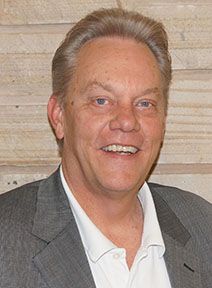What's the difference between counselors, psychiatrists, psychologists, social workers and therapists
- Posted On:
- Written By: By Jeff Rice, BHS Director

The article below is part of an educational series to help the community better understand Behavioral Health Services (BHS) available to them in Gillette, Wyoming.
Therapists come in many shapes and sizes. I will attempt to describe what kinds of Therapists that are available to you at Behavioral Health Services (BHS) at Campbell County Memorial Hospital so you might have a better idea.
Please remember: Not any therapist can be said to be the right one for you. Often there has to be some connection, respect, and trust. It is not wrong for you to feel as though you are not making progress and want to change therapists. You have that right as does the therapist in making a change if it helps the patient.
- Psychiatrists are medical doctors who have been through medical school and have specialized training in mental illness. They often then attend programs that give them additional training in specialty areas like Substance Abuse, the elderly, or children and adolescents.
- Psychologists are trained licensed professionals who have gone beyond the master’s level of training. They are Doctors of Philosophy. They are not medical doctors (MDs) and in Wyoming, they cannot prescribe medications. They often have extra training in assessment and use an array of testing that can be helpful in determining diagnosis and/or condition. They do therapy and may even help psychiatrists with diagnosis of patients they are not the primary professional for.
- Licensed Clinical Social Workers are master’s prepared licensed professionals. They generally come up through the school of social work. They are highly trained therapists and have special expertise in social systems and how we manage ourselves in those systems.
- Licensed Marriage and Family Therapists (LMFT) are master’s trained licensed professionals who not only do therapy but also work with families as a system. One may not know it but most of our social, work, and family interactions are done through one system or another. LMFT’s help us to navigate those systems and can pinpoint where a system is dysfunctional or where we are creating problems for the system.
- Licensed Professional Counselors are master’s prepared professionals with expertise in therapeutic interactions. They are highly trained and can address most mental illness with equal expertise and compassion.
At BHS, we have all of those represented. All of the staff are dedicated to providing the best care they can—given the situation and the patient’s willingness to do the work.
Which brings me to another topic: Therapists and psychiatrists do not fix people. People fix themselves with the aid of a professional. We cannot do the work for you.
In fact, if you come in with the attitude that you or a loved one needs to be fixed, you may get an initial appointment but it will soon come down to whether or not you want to work. If you do not want to work, you may be asked to find another therapist or doctor.
Again, people can inadvertently clog up a system when in fact they do not even want to be there but go because a family member wants, the courts it or a friend wants it. The ultimate question is: Do you want it.
Jeff Rice is the Director of Behavioral Health Services at Campbell County Memorial Hospital. BHS provides professional mental health and substance abuse services to the community through prevention, education, advocacy and treatment for all ages in the community. Appointments are available Monday–Friday from 8 am–5 pm. Call 307.688.5000. Learn more at www.cchwyo.org/BHS.
